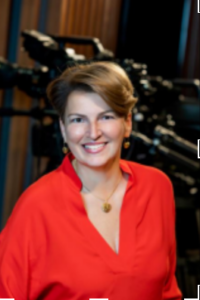New public relations professionals must take control of their own careers. Here’s how.
Even in challenging economic circumstances, you have control over your career.

J. Scott Punk is marketing manager at The Linux Foundation and has held senior agency and in-house roles. Jin Kien (JK) Tan is a freelance consultant.
As uncertainty about the economy increases, public relations professionals are understandably anxious about the near term. Historically, marketing budgets are cut at the onset and throughout the downturn, which have already impacted public relations professionals’ finances and morale.
While all of this sounds dire — and it is — there are several practical and cost-effective ways to weather difficult outlooks. And just like the more successful corporations, it’s crucial to consider what’s worth doing differently and balance short- and long-term efforts and outcomes.
First and most important is to understand that you are the CEO and leader of your own career, regardless of what may hinder you now or has bolstered you in the past. To exemplify how previous positives may not matter, take, for instance, the current spate of layoffs. A short scroll of your LinkedIn feed will highlight that even the best performers who created high-impact PR initiatives, and attained fabulous results, were let go all the same. The lesson here is that depending on an external party to determine your career growth or professional value, does not do anyone any favors; your career is best managed in your own hands.
Hone your focus, value and skills
As you’re probably aware, while public relations is a transferable skill across different industries, what many employers value – rightly or not – is the track record in, and knowledge of, a specific industry as well as your network within the industry and its media professionals.
Before you commit time and perhaps, money, to a course, be sure that what you’re signing up for has heft and quality, rather than redundant certificates, which are often seen posted on LinkedIn.
Network, network, network
As you upgrade your skill sets, don’t forget to also broaden your network. You must go beyond journalists to include industry associations, executives, other communications professionals, senior industry executives, regulators, analysts and more. One place people often overlook is fellow course participants and those looking for work, who may know of opportunities not suited to their goals, but are perfect for yours.
Also invest in attending networking events, both virtual and in-person. This may take some trial and error and luck, but focusing onthe quality of events will be key to success. There are several factors, including the organizer’s reputation, participants’ feedback, the profile of attendees and the price to attend.
Be sure to look beyond PR-specific events. Business networking events, including ones for industries you are interested in, can grow your personal network. At these events, focus on actively seeking out new contacts and learning from others. Some homework beforehand, such as identifying what you’re seeking from people and testing your elevator pitch with friends, will take your efforts further.
Even though pandemic restrictions have rolled back, there will be essential contacts who still prefer remote or online connections. Though it is intuitive to forge networks on LinkedIn, don’t forget to also join groups on other online networks. Here, it is essential that you bring your authentic self to the conversation, as sincerity fosters sincerity.
Building a strong network within the PR/marketing functions can lead to potential collaborations, mentorship opportunities and referrals for career and business opportunities. As you grow your own networks, it may be an opportunity to organize your own networking event, which puts you in the driver’s seat where you can shape the agenda.
Mentorship spurs development
As you network and develop your contacts, remember to seek opportunities to develop mentors, either through formal programs or informal outreach to your network.
Consider seeking mentors from different functions and industries to expand your areas of expertise. Through conversations with diverse professionals, you can tap into a wealth of life and professional experiences, and gain new insights.
These are just some of the ways to take control of your career. Life is not linear and neither are careers, so as you apply some or all of what you’ve read, here or elsewhere, remember that it is okay to experience setbacks, but more importantly learn from them. Because that’s how you become a leader, even if it is just of your own career.
This is part one of a three-part article series focused on how new PR pros can navigate economic uncertainties. The second article aims to guide mid-level PR professionals and the third will highlight what agency leaders can do.






